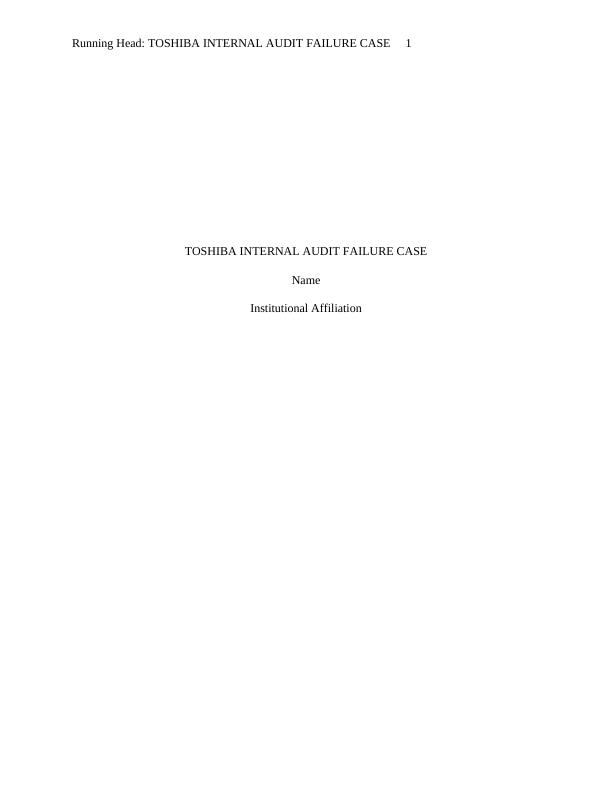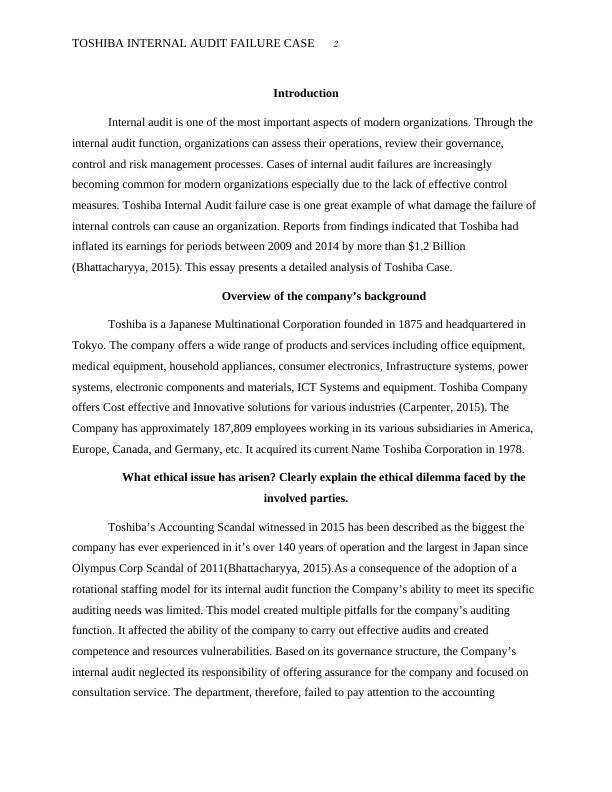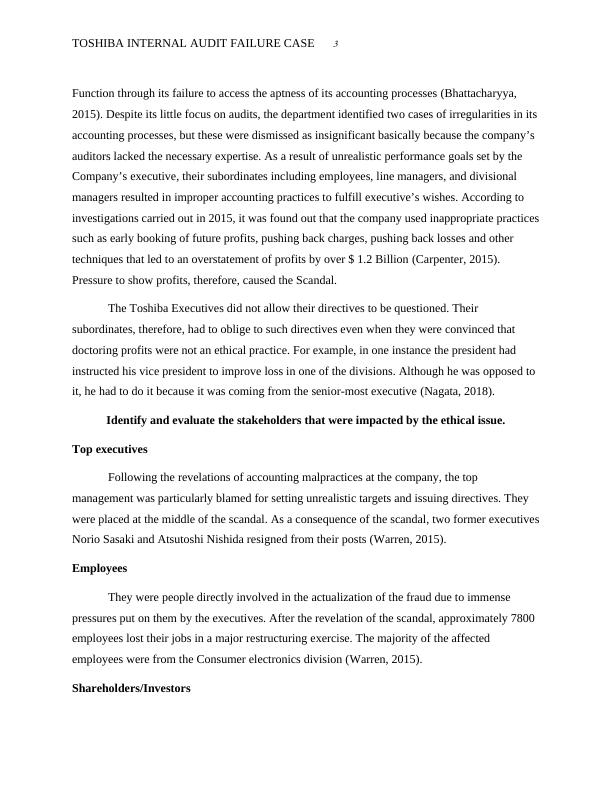Toshiba Internal Audit Failure Case
Write a 1,000 word essay on a chosen corporate case that has attracted media attention due to ethical issues.
6 Pages1421 Words352 Views
Added on 2023-06-04
About This Document
This essay presents a detailed analysis of the Toshiba Internal Audit Failure Case, including the background of the company, the ethical issue that arose, the stakeholders impacted, and the consequences of the decision made by the involved parties. The decision made was not ethical and had negative consequences for the company, including the resignation of executives, loss of jobs for thousands of employees, lack of trust by investors, and legal suits.
Toshiba Internal Audit Failure Case
Write a 1,000 word essay on a chosen corporate case that has attracted media attention due to ethical issues.
Added on 2023-06-04
ShareRelated Documents
End of preview
Want to access all the pages? Upload your documents or become a member.
Toshiba Accounting Scandal: A Case Study on Ethical Issues and Stakeholders
|6
|1500
|410
Toshiba: Account Scandal
|6
|2293
|153
A load of tosh? Toshiba's accounting scandal
|14
|3316
|71
Professional Values Ethics And Attitudes: Detailed facts of Olympus and Toshiba corporation scandals
|13
|3388
|338
Strategic Management for Toshiba Corporation
|13
|3815
|29
Audit and Control in IS/IT
|6
|1960
|190



